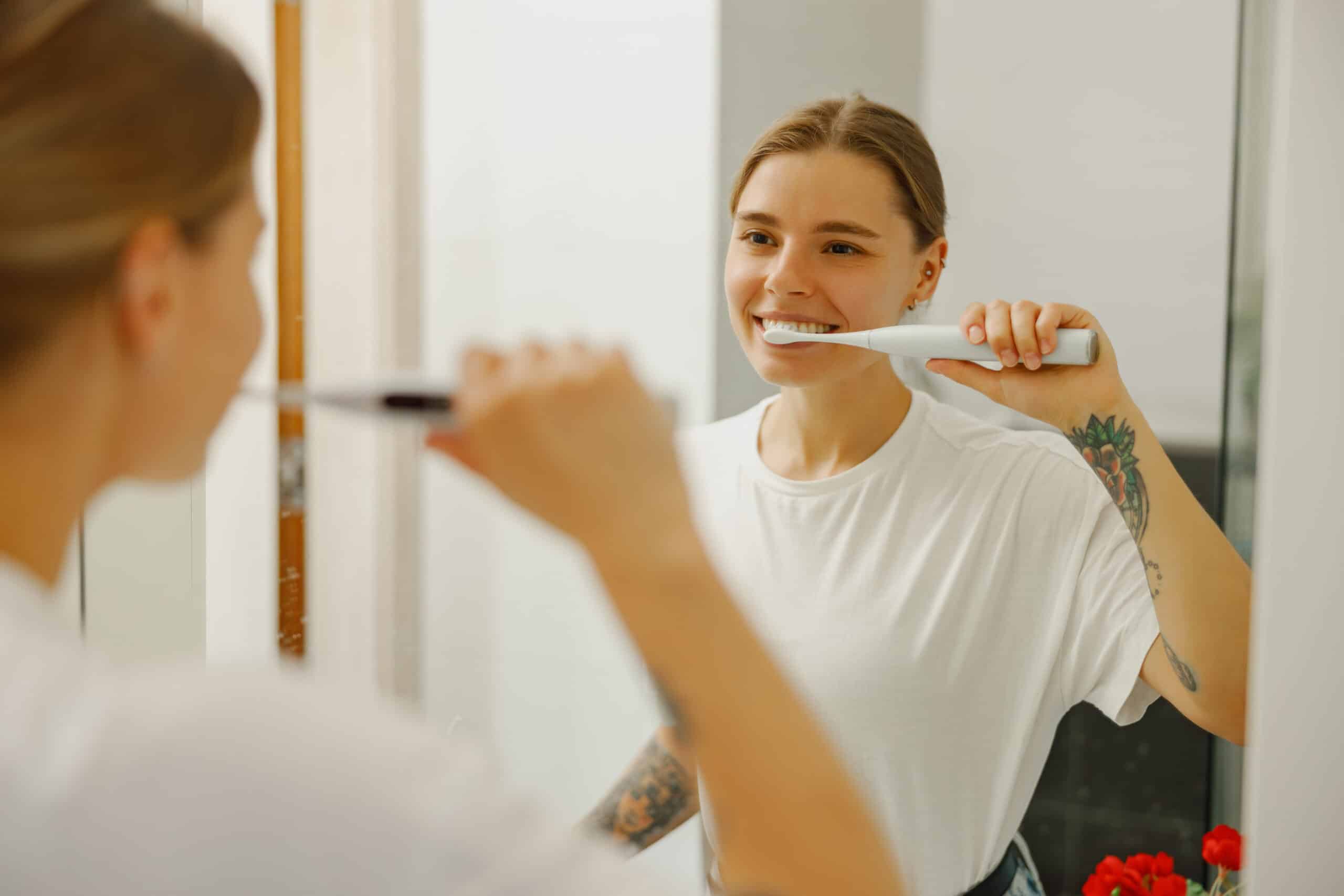- What are complete dentures?
- What are partial dentures?
- How are traditional dentures made?
- How to care for dentures
- How much do dentures cost?
- Complete vs. Partial Dentures: Which Option is Better?
Smiling helps you feel great! It enables you to win deals, attract the love of your life, and make people want to socialize with you.
Unfortunately, 6.4% of Canadians between ages 20 and 79 have no teeth of their own. Although these numbers have declined thanks to improved fluoride policies and regular dental visits, too many people are still missing out on the positive benefits a healthy smile can bring.
Dentures offer a cost-effective, non-invasive solution that can be fit in a relatively short period of time. Modern conventional dentures look natural and fit perfectly thanks to 3D scanning technology, dental implants, and innovative molding materials and techniques. Long gone are the days where poorly-fitting dentures pop out of your mouth or stop you from eating what you want – modern dentures bring you both great looks and peace of mind!
Another benefit to dentures is that dentures are removable for cleaning and maintenance, unlike a dental bridge and dental implants.
There are generally two types of dentures to choose from: complete dentures and partial dentures.
What are Complete Dentures?
Your dentist will recommend complete upper dentures or lower dentures when you have no teeth left in your arch.
Complete dentures are kept in place by the layer of saliva between the gums and the denture and the supporting tissue and musculature of the face. Once the complete dentures are attached, you’ll find chewing much easier and smiling much more pleasant than ever before!
What are Partial Dentures?
A partial denture is created to fit around your natural teeth. Typically, a partial denture will be used where you have multiple healthy teeth in the arch that won’t need a tooth extraction procedure in the near future. Partial dentures are held in place by clasps that fit onto neighbouring natural teeth, as well as by other retentive features depending on how many teeth are retained. Your dentist may recommend dental implants to give your partial dentures extra stability.
One benefit of a partial denture is that your natural teeth help to keep the denture in place, ensuring a secure fit, without causing your teeth to move or shift. In some cases, your dentist can make and fit partial dentures in one day.
How are complete dentures made?
Making and fitting dentures is a relatively simple procedure completed in just a few dental appointments.
- Your dentist will make an impression of your upper and/or lower gums
- The impression is poured into a cast and sent to the dental laboratory
- Using your cast as a reference, the lab creates a wax version of the gumline
- Your dentist will alter this wax to determine where the teeth will be positioned
- The dentures are returned to your dentists for fitting
Your dentist will determine if they look and function correctly with your facial muscles during the denture fitting. Once you and your dentist are satisfied that you have well-fitting dentures, the dentures are sent back to the lab for final processing.
The dental lab will replace the wax with acrylic before cleaning and polishing the dentures. The final set of conventional dentures is then sent back to your dentist’s office, ready for you to wear. The entire process usually takes a few weeks to complete, after which you’ll have a refreshed smile to proudly show the world!
How to care for dentures
Removable dentures aren’t immune to the effects of plaque and tartar and so need to be cleaned regularly. Here are some tips on keeping traditional dentures as clean and sparkling as possible:
- Run your dentures under warm water (not hot water) to loosen food particles
- Gently brush all surfaces with a denture brush and denture cleaner (denture cleansers, which are much gentler than traditional toothpaste, are available in most drug or grocery stores)
- Clean gently around the metal clasps and take care not to bend them
- Soak your dentures overnight in a container filled with warm water
Remove or replace your dentures over a folded towel to prevent breakage if you accidentally drop them. Be sure to report any denture cracks or denture breaks to your dentist as soon as possible. Your dentist will inspect the dentures at least once per year in case any adjustments need to be made.
With proper care, your complete and partial dentures will give you years of excellent performance.
What is the cost of dentures?
The cost of permanent dentures varies due to several factors, including the number of teeth being replaced, the location of the missing teeth, denture design, and more
Your dentist must examine your mouth and determine the proper treatment plan before they can provide an estimated cost. The estimate can then be sent to your insurance provider to determine if the proposed treatment is covered entirely or partially under your dental plan.
Complete vs. Partial Dentures: Which Option is Better?
Partial dentures are used when at least one tooth remains to help support the denture. These remaining teeth are generally healthy and aren’t expected to be extracted for many years, if at all.
Your dentist will help you make the most informed decision possible by answering all of your questions and giving you their best recommendations.
Today’s dentures are designed for excellent performance, long-lasting durability, and a beautiful smile you’ll be proud of!
Complete vs. Partial Dentures: Which Option is Better for You? Ask the dental team at Yonge Eglinton Dental in Toronto
When you need complete or partial dentures to improve your smile, come see the dental professionals at Yonge Eglinton Dental. We focus on protecting the look and performance of your teeth with solutions that prioritize overall health and well-being. Make an appointment for an office visit today by calling our office at 416-932-2222 or booking online. We look forward to seeing you!
Are you concerned about visiting the dentist? Read about how we protect the health and safety of our patients and staff so your family can seek proper dental care with peace of mind.








